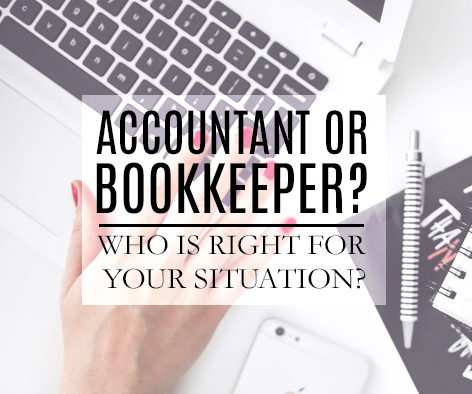If you are a small business owner, I expect you to be an expert in your field—whether it’s the restaurant, spa, or construction industry. You didn’t get into entrepreneurship because you wanted to crunch numbers all day, which is why you are probably looking to hire a financial professional to help you manage your company’s income and expenses. However, this is not always a clear decision: do you need a bookkeeper or an accountant? Although some may claim you can use one or the other, I advise all small businesses to use both for optimal financial management.
To begin, let’s take a look at the responsibilities inherent in each role. Besides in title, what are the fundamental differences between bookkeepers and accountants? Most generally, bookkeepers input, track, and organize your business’s transactions. In short, they are responsible for handling your business’s quantitative data—all those numbers you didn’t want to touch yourself! Accountants, on the other hand, typically focus on financial reporting and, possibly, business analysis. They synthesize the information that the bookkeeper manages—into tax statements and reports, for example. Of course, these titles are not set in stone; many bookkeepers provide services above and beyond data-entry.
Some professionals would suggest hiring only a bookkeeper if the business is small with a limited number of employees. However, this poses the potential for problems. If you hire only a bookkeeper, you may expect expert financial advice that he or she is not qualified to provide. For this reason, I recommend supporting your bookkeeper with a CPA. This is a common partnership. Many bookkeepers work well with accountants to facilitate and streamline communication with the business owner. You’ll be happy for this financial symbiosis when tax season arrives in April! Furthermore, because bookkeepers tend to have more reasonable rates, they are an economical choice if you think you will require frequent consultations. A bookkeeper can also keep his or her finger on the pulse of your financial situation—and alert you if a problem arises that requires more extensive expertise. In these cases, you can turn to your accountant.
Financial management can be one of the most stressful aspects of running your own business—but it doesn’t have to be. With an experienced bookkeeper and accountant tracking your numbers, you can focus on whatever you do best: customer support, marketing, or driving your food truck!

